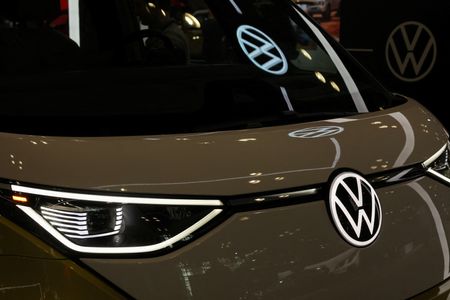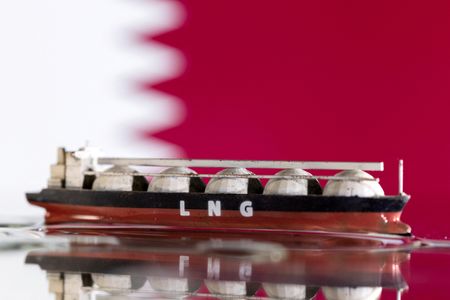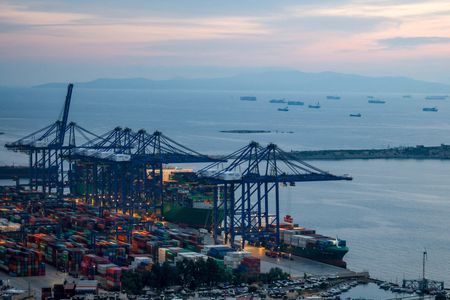By Rachel More
BERLIN (Reuters) -Volkswagen reported a 1.3-billion-euro ($1.5-billion) first-half hit from tariffs and cut its full-year sales and profit margin forecasts in the German carmaker’s first assessment of the damage from U.S. President Donald Trump’s trade war.
Global automakers have booked billions of dollars of losses and some have issued profit warnings due to U.S. import tariffs. The European industry is also facing stiffening competition from China, and domestic regulations aimed at speeding up the electric vehicle transition.
Volkswagen, Europe’s biggest carmaker, now expects this year’s operating profit margin between 4% and 5%, compared with a previous forecast of 5.5% to 6.5%. Full-year sales, earlier seen up to 5% higher, are expected to be level with the previous year.
Volkswagen shares dropped by as much as 4.6% in early Friday trade, before recovering as the day progressed. They were 1% higher at 1305 GMT.
Investors had largely anticipated a guidance cut, after the company held off on assessing the damage of tariffs in the previous quarter, and appeared calmed by assurances that the group’s luxury brands Audi and Porsche would recover next year following heavy losses in the second quarter.
CEO Oliver Blume told investors the company must accelerate its cost-cutting efforts in response to the tariffs.
“We need to shift our cost efforts into high gear and accelerate implementation. After all, we cannot assume that the tariff situation is only temporary,” Blume said.
TARIFF RESPONSE
Volkswagen and its competitors are pressing European trade negotiators to strike a deal to reduce a 25% U.S. tariff they have faced since April.
EU diplomats have indicated that the bloc could be moving towards a broad 15% tariff as it seeks to avoid a threatened 30% levy from August 1. A deal struck between the U.S. and Japan earlier this week raised hopes for a similar agreement for Europe, boosting carmakers’ shares.
Finance chief Arno Antlitz said Volkswagen’s profit margin would roughly land in the middle of its guidance with a Japan-style deal, which had a 15% tariff rate.
He warned, however, that the clock was ticking on finding a deal. “We are already in July, so the longer we go into the second half of the year, the more we tend to the lower end of the guidance,” he said.
Antlitz declined to comment on price increases when pressed by investors on how the company planned to protect its margins against tariffs.
Volkswagen reported an operating profit of 3.8 billion euros in the quarter ended June 30, down 29% on the previous year, citing tariffs and restructuring costs, as well as higher sales of lower-margin all-electric models.
While Volkswagen was able to boost deliveries globally by 1.5% in the first six months of 2025, the group saw a decline of almost 10% in deliveries to the United States.
North American sales revenue accounted for 18.5% of the carmaker’s global sales in the first half.
Car sales data for June highlighted a broader slowdown in Europe’s struggling auto sector – and showed Volkswagen among the laggards as the company undergoes a major overhaul to cut over 35,000 jobs by the end of the decade.
Porsche and Audi are particularly exposed to U.S. tariffs given they have no production there, and rely heavily on exports.
In the second quarter, Porsche’s operating result plunged by over 90% to 154 million euros and Audi’s by 64% to 550 million.
“For both companies, Audi and Porsche, we are expecting that we will touch the bottom this year with positive momentum from 2026 onwards,” Blume said.
($1 = 0.8515 euros)
(Additional reporting by Maria Rugamer in Gdansk and Christina Amann in Berlin. Editing by Friederike Heine, Tomasz Janowski and Mark Potter)










